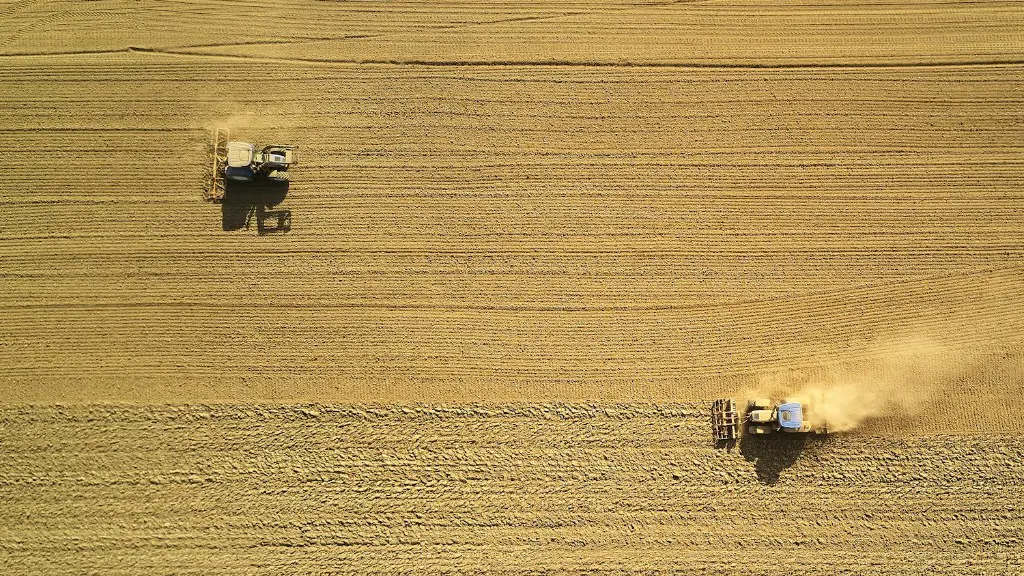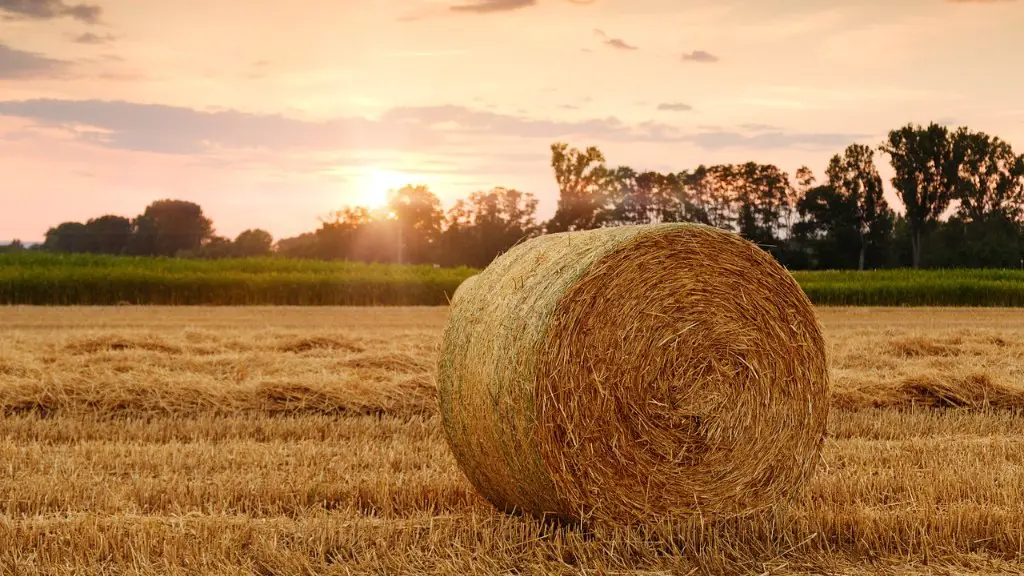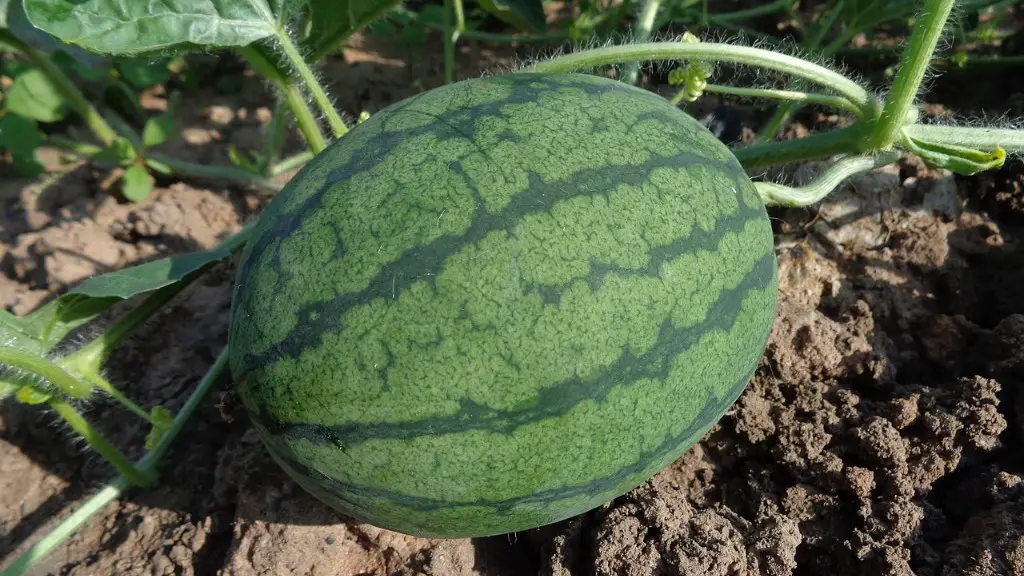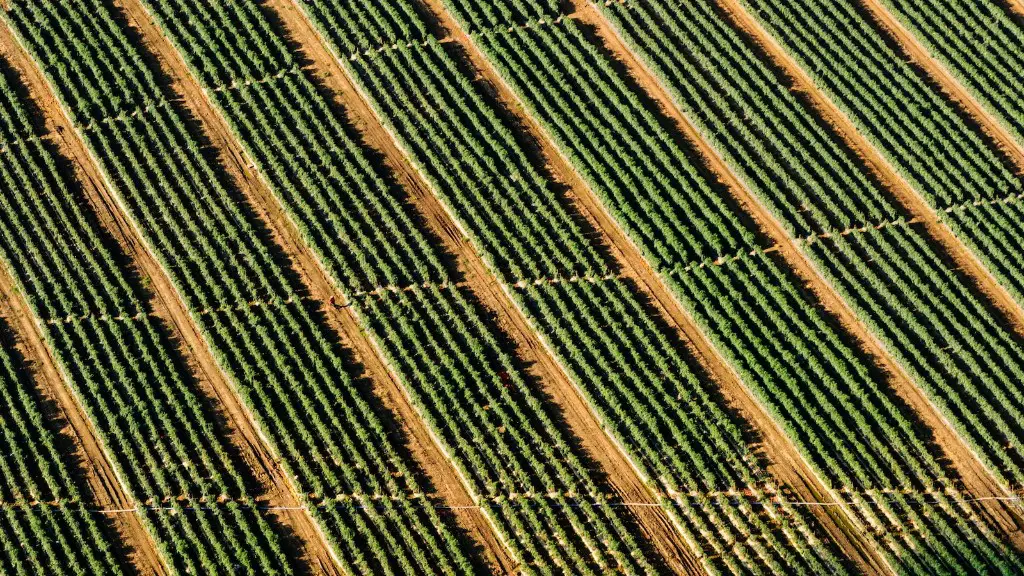Biochemistry is a branch of science that explores the chemical processes in living organisms. In agriculture, biochemistry is used to understand how plants and animals grow, how they convert food into energy, and how they resist disease. This information can be used to improve crop yields, livestock health, and food safety.
Biochemistry is the study of chemical processes in living organisms. This includes the study of how these chemicals interact with each other and how they are affected by changes in the environment. Agriculture is the application of this knowledge to the production of food and other products from plants and animals.
What is the role of biochemistry in agriculture?
Biochemistry has played a vital role in enhancing plant growth, yield, and quality. By optimizing fertilizer components, crop improvement has been greatly improved. Tolerance to biotic and abiotic stresses has been increased, and nutritional value has been augmented. These advances have made a significant impact on the agricultural industry, and have helped to ensure a plentiful food supply for the growing world population.
Topics covered in this class will include:
-cellular structure and biochemical function
-structure of biomolecules including proteins, lipids and carbohydrates
-energy generating pathways
-photosynthesis
-metabolism
-fixation and assimilation of nitrogen
-transformation of metals, phosphorus and sulphur
-comparative metabolism in
Who is a agricultural biochemist
Biochemists investigate the chemistry of all living things. As a Biochemist working in the Agricultural sector, you could be studying the interaction between plants and herbicides, and developing genetically engineered crops that are resistant to drought, disease, and so on. You would be working to improve the quality and yield of crops, and to find ways to make agriculture more sustainable.
Biochemistry is a branch of science that combines biology and chemistry to study living matter. It is important for scientific and medical discovery in fields such as pharmaceuticals, forensics and nutrition. By studying chemical reactions at a molecular level, biochemists can better understand the world and develop new ways to harness these reactions.
Plant biochemistry is the study of chemical processes within and relating to living organisms. By controlling information flow through biochemical signaling and the flow of chemical energy through metabolism, biochemical processes give rise to the complexity of life.
Photosynthesis is an example of a biochemical process. This is a chemical process by which plants convert sunlight into food. Another example is the effect of the drug caffeine on the human nervous system. This process involves a number of complex biochemical reactions.
What are the 7 branches of biochemistry?
As one of the basic sciences, biochemistry incorporates many subspecialties, each with a focus on a particular area of study. These subspecialties include neurochemistry, bioorganic chemistry, clinical biochemistry, physical biochemistry, molecular genetics, biochemical pharmacology, and immunochemistry. Each subspecialty contributes to our understanding of the complexities of biochemistry, and together they provide a comprehensive picture of this vital field of science.
BioChemistry is a sub-discipline of both biology and chemistry that can be divided into three fields: structural biology, enzymology, and metabolism. Structural biology is the study of the three-dimensional structure of biological molecules. Enzymology is the study of the biochemistry of enzymes, including their structure and function. Metabolism is the study of the chemical reactions that occur in living cells. Over the last decades of the 20th century, BioChemistry has become successful at explaining living processes through these three disciplines.
What chemistry is used in agriculture
Agricultural chemistry is a branch of chemistry that deals with the production of pesticides and insecticides. Pesticides are used on a large scale to prevent external organisms from harming the crops. This includes rodenticides, pediculicides, biocides, fungicides, herbicides, etc.
This is a great salary and will allow you to live a comfortable life. Make sure to save some money each month so that you can enjoy your life while still having financial security.
What are the four branches of biochemistry?
The major branches of biochemistry include animal biochemistry, plant biochemistry, metabolism, and enzymology. Animal biochemistry focuses on the chemical processes that occur in animals, while plant biochemistry focuses on the chemical processes that occur in plants. Metabolism is the study of the chemical reactions that occur in living organisms, while enzymology is the study of enzymes, which are proteins that catalyze chemical reactions in living organisms.
Biochemists are in high demand and are paid handsomely for their skills. The median salary for a biochemist is $102,270, with the top 25% earners making $132,390 or more per year. The lowest-paid 25% of biochemists make $79,000 or less annually. Biochemists are in high demand due to the pressing need for new medical advances and treatments. With a median salary of over $100,000 per year, biochemists are well-compensated for their vital work.
What is biochemistry in simple words
At its most basic, biochemistry is the study of the chemical processes occurring in living matter. However, this simple definition encompasses an incredibly diverse field of research that touches nearly all aspects of our lives. Biochemistry is involved in the development of new drugs and treatments, the design of clinical trials to test their efficacy, the study of food and nutrition, and the characterization of the countless biochemical processes that keep us alive.
Pure biochemistry is the study of biological molecules and how they give rise to the processes occurring within living cells. It is closely related to the study of whole organisms, as understanding the biochemical mechanisms within cells can provide insight into the functions of whole organisms.
What is the biochemistry of plant growth?
The field of Biochemistry of Plant Development is a relatively new field that is still being explored. Researchers in this field are studying the mechanisms by which regulatory proteins control the formation of stem cells and tissues. This research is important in understanding how plants develop and how to manipulate plant development for various purposes.
One of the goals of plant breeding is to increase the knowledge of interactions between plant attackers and hosts. Biochemical methods of selection are needed for a successful utilization of the genetic variation. Such methods are also needed in order to increase the knowledge of root exudates of crop plants.
What is the scope of biochemistry in plants
Plant biochemistry is a field of study that can help students to become agricultural scientists in the future. Agricultural scientists work on developing high yielding crops, disease-resistant crops, and isolating medicinal compounds from plants. By studying plant biochemistry, students can gain a better understanding of how plants work and how they can be used to benefit society.
The most common industry role is the development of biochemical products and processes. Identifying substances’ chemical and physical properties in biological systems is of great importance, and can be carried out by doing various types of analysis.
Final Words
Biochemistry is the study of the chemical processes that occur in living organisms. It covers a wide range of topics, from the structure and function of the molecules that make up living cells to the regulation of metabolism. Agricultural biochemistry includes the study of plant metabolism, specifically the biochemical processes that occur in plants. This can include the study of plant growth and development, photosynthesis, nutrient uptake and metabolism, and stress responses. Agricultural biochemistry is important for understanding how plants grow and how to optimize plant production.
Through the study of biochemistry, agriculturists have gained a greater understanding of the chemical processes taking place within plants and soil. This knowledge has led to the development of more effective and efficient methods for growing crops and managing farmland. Biochemistry has also helped in the development of new and better Agricultural chemicals, such as fertilizers and pesticides.





